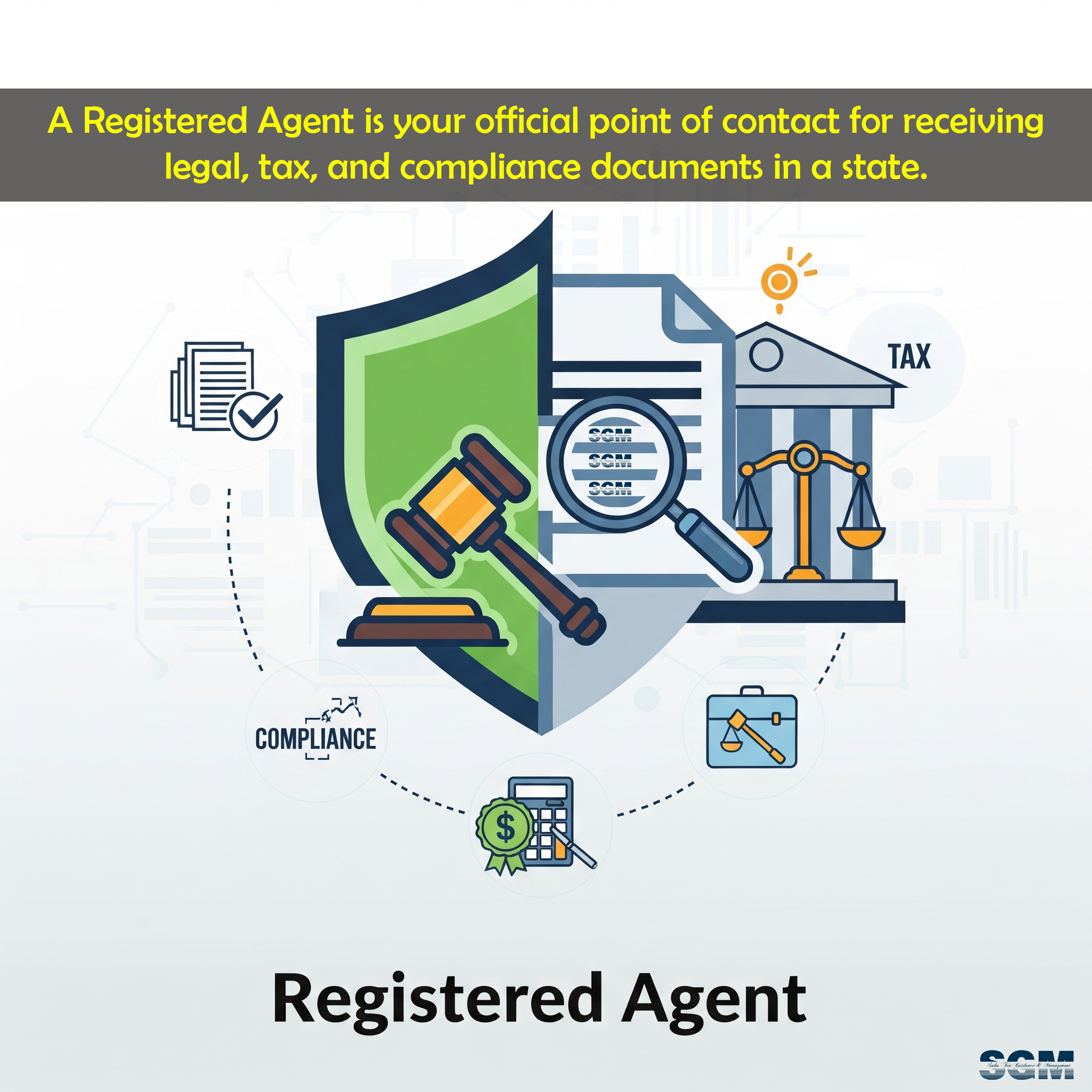Registered Agents Explained: What They Do and When Your Business Needs One
As more than 41 states now require out-of-state sellers to collect and remit sales tax, businesses — especially in the eCommerce space — are finding themselves registering to do business in multiple states. With this expansion often comes another requirement: appointing a registered agent.
If you’ve never heard the term before, you’re not alone. But if your business has recently established sales tax collection obligations in new states, understanding what a registered agent is — and whether you need one — is essential for compliance.
What Is a Registered Agent and Why Is It Important?
A registered agent (RA) is the designated legal contact for your business in a particular state. They serve as the official recipient of important business, legal, and tax documents on behalf of your corporation, LLC, or limited partnership.
You’re generally required to have a registered agent:
- In your home state
- In any other state where your business is registered to operate
This role exists to ensure your business can be reliably contacted for matters such as legal notices, tax correspondence, and compliance filings.
Important: Simply renting a post office box isn’t enough. A registered agent must be a real person or authorized business entity with a physical presence in the state, available during regular business hours.
Some states refer to registered agents as commercial registered agents or statutory agents — but the function remains the same.
Why States Require You to Have a Registered Agent
The primary reason states require a registered agent is to ensure legal and official documents can be served promptly and reliably.
These may include:
- Annual report reminders from the Secretary of State
- Tax notices from state agencies
- Legal summons or complaints
If your business is legally required to have an RA, you must maintain one at all times. Failure to do so can lead to penalties or even the revocation of your authority to do business in that state.
Do You Need a Registered Agent If You Have Economic Nexus?
The need for a registered agent often depends on how your business is connected to a state.
- Economic Nexus Only: If you have no physical presence but meet economic nexus thresholds, you typically can register for a sales tax license without obtaining a Certificate of Authority (CoA) from the Secretary of State — meaning you likely don’t need a registered agent.
- Physical Presence Nexus: If you have inventory in the state, attend trade shows, or maintain another physical presence, you may be required to obtain a CoA. In that case, appointing a registered agent will also be required.
Because sales tax laws change frequently, it’s wise to verify your obligations with a trusted tax advisor or directly with the state.
Acting as Your Own Registered Agent: Pros and Cons
Yes — in your home state, it’s usually allowed. However, there are several drawbacks:
- Availability: You must be available during regular business hours, making vacations or sick days difficult.
- Privacy: Receiving sensitive legal documents in front of employees or customers can be awkward and disruptive.
- Geographic Limitation: You can’t be your own RA in states where you lack a physical address.
How to Choose the Right Registered Agent for Your Business
When selecting an RA, you have two main options:
1. Appointing an Individual
This could be a trusted employee, friend, or family member. While cost-effective, it comes with the same challenges as acting as your own agent — limited availability, confidentiality concerns, and the need for multiple people in different states.
2. Hiring a Professional Service
Professional registered agent services operate in every state. Many offer multi-state or nationwide coverage, allowing you to maintain a single relationship even as you expand.
Benefits of hiring a professional RA service include:
- Consistent compliance across states
- Confidential handling of sensitive documents
- Freedom to travel or step away without risking missed notices
- Potential cost savings compared to using an attorney or accountant
Key Takeaway: Keep Compliance Simple and Reliable
If your business is expanding into new states — whether through eCommerce growth, physical expansion, or increased sales tax obligations — understanding the role of a registered agent is key to staying compliant.
While you can sometimes act as your own RA, professional services often provide greater flexibility, privacy, and reliability — all while ensuring you never miss an important notice.
Tip: Review your business’s current and future nexus footprint. If a Certificate of Authority is required in any state, appointing a registered agent should be at the top of your compliance checklist.
Suggested Keywords:
registered agent, what is a registered agent, registered agent requirements, do I need a registered agent, registered agent for LLC, registered agent for corporation, statutory agent, commercial registered agent, economic nexus registered agent, foreign qualification registered agent, registered agent services, how to choose a registered agent, physical presence nexus registered agent, sales tax compliance registered agent, registered agent for ecommerce business, certificate of authority registered agent, appointing a registered agent, acting as your own registered agent, benefits of a professional registered agent, nationwide registered agent services.


